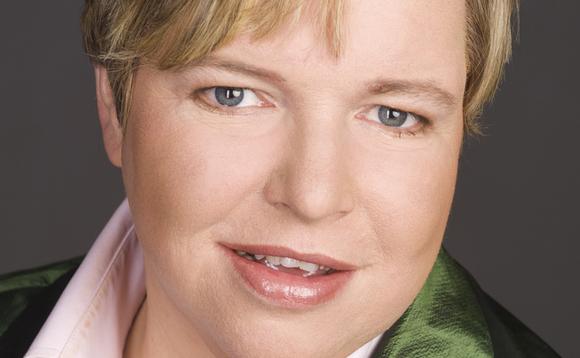
German AIFMD draft criticised for strict stance

The German government has put forward a proposal for the implementation of the AIFMD that could destroy the country’s standing as a private equity fund location. The industry is confused – is this the biggest shake-up they have seen in recent years or will it yet be turned on its head? Carmen Reichman reports
Preventing GPs from investing in their own funds, prohibiting funds-of-funds altogether and making it more expensive for funds to raise money are all part of an agenda that some industry professionals call crude and damaging. Germany's competitiveness as a private equity location is under threat if the so-called German Investment Code (GIC) stays in its proposed form, according to practitioners.
"What is disappointing is that the German legislature has failed to put together an implementation of AIFMD that is competitive, especially compared to other implementing laws such as Luxembourg's, that doesn't feature tougher limitations than are presented by AIFMD," says Benedikt Weiser, partner at advisory firm Dechert, which has conducted a study into the effects of the proposed legislation in Germany. He adds: "Those who are able to go to Luxembourg should go – and they will go."
But this traditional hotspot for private equity is not the only country that could take away trade from Germany, especially as the European passport will make private equity within the EU a lot more accessible. "There will be a lot of jurisdictions in Europe that will not impose such burdens on themselves," says Weiser.
The German government is proposing a strict ban on so-called "non-professional" investors investing in private equity. This effectively prohibits not only family offices, academic institutions, trusts and most private investors from investing in private equity funds but bizarrely the GPs themselves. "What gets forgotten here is that the GP contribution is paramount to attracting new investors for whom it presents a security," says Ulrike Hinrichs, managing director of the BVK. "Restrictions like these will cause the loss of hundreds of millions of euros of private equity investment in Germany each year."
The distribution of fund interests to non-professional investors is only permitted for funds that invest in renewable energy, ships, airplanes and real estate. This exemption is "purely ideological, it makes no sense," says Weiser, pointing out the proven risks these subsectors have shown in the past, not least during the property bubble and German solar crisis.
Raising funds in Germany could soon become more expensive too as lawyers and advisers will have to step aside for highly regulated financial services firms to take over as depositaries, a measure that is not set out by the AIFMD. "Lawyers would be more knowledgeable and cheaper," argues Weiser. "This rule was devised out of pure spitefulness."
However, one of the biggest concerns about the GIC is that half of the proposed legal fund structures, the "AG" or listed firm structure, have no adjacent tax structure, so it is unclear how viable this option will be for GPs. "The biggest catch in this proposal is that it was drafted without practicality and without any consideration of taxation regulations. That is a big humbug because funds only work when they are also tax efficient," argues Weiser.
Before GIC was proposed, German private equity faced tough competition due to its VAT-taxed management fees, so even tougher regulation could seriously hamper the competitiveness of the industry. However, instead of panicking outright about the changes, industry figures are doubtful the proposition will ever make it into actual law.
A veteran of the German political scene, Hinrichs says: "One has to pay attention to where the draft paper came from, who wrote it, whether it came from the top or if a backbencher wrote it. Discussion drafts very often get changed an awful lot before they become law." Hinrichs previously worked as head of communications at the Federal Ministry of Agriculture and as chief of office staff at the Foreign Office where she observed the political processes around building legislation first-hand. She points to the 2008 VAT reform, which ended up looking nothing like its original draft, before suggesting, "The implementation of the law will not see over-regulation."
Hinrichs is joined by a number of industry professionals, including Deutsche Beteiligungs AG managing director and BVK executive board member Wilken von Hodenberg in her cautious but quietly confident views. This is not least because of recent remarks by Chancellor Angela Merkel, who said she wanted to focus on pushing investment for young businesses in the country. However, under GIC, venture capital would be seriously restricted. The VC industry is also bracing itself for its own set of regulations, the Regulation on European Venture Capital Funds, which could free it from the restraints of GIC.
Recognising the positive potential of regulation per se, the BVK hopes for a version of AIFMD that the industry will welcome and honour as a seal of approval. However, it is unclear which path the German government will take and it is evident that the threat of serious curbs on the industry looms just around the corner.
Latest News
Stonehage Fleming raises USD 130m for largest fund to date, eyes 2024 programme
Multi-family office has seen strong appetite, with investor base growing since 2016 to more than 90 family offices, Meiping Yap told Unquote
Permira to take Ergomed private for GBP 703m
Sponsor deploys Permira VIII to ride new wave of take-privates; Blackstone commits GBP 200m in financing for UK-based CRO
Partners Group to release IMs for Civica sale in mid-September
Sponsor acquired the public software group in July 2017 via the same-year vintage Partners Group Global Value 2017
Change of mind: Sponsors take to de-listing their own assets
EQT and Cinven seen as bellweather for funds to reassess options for listed assets trading underwater







